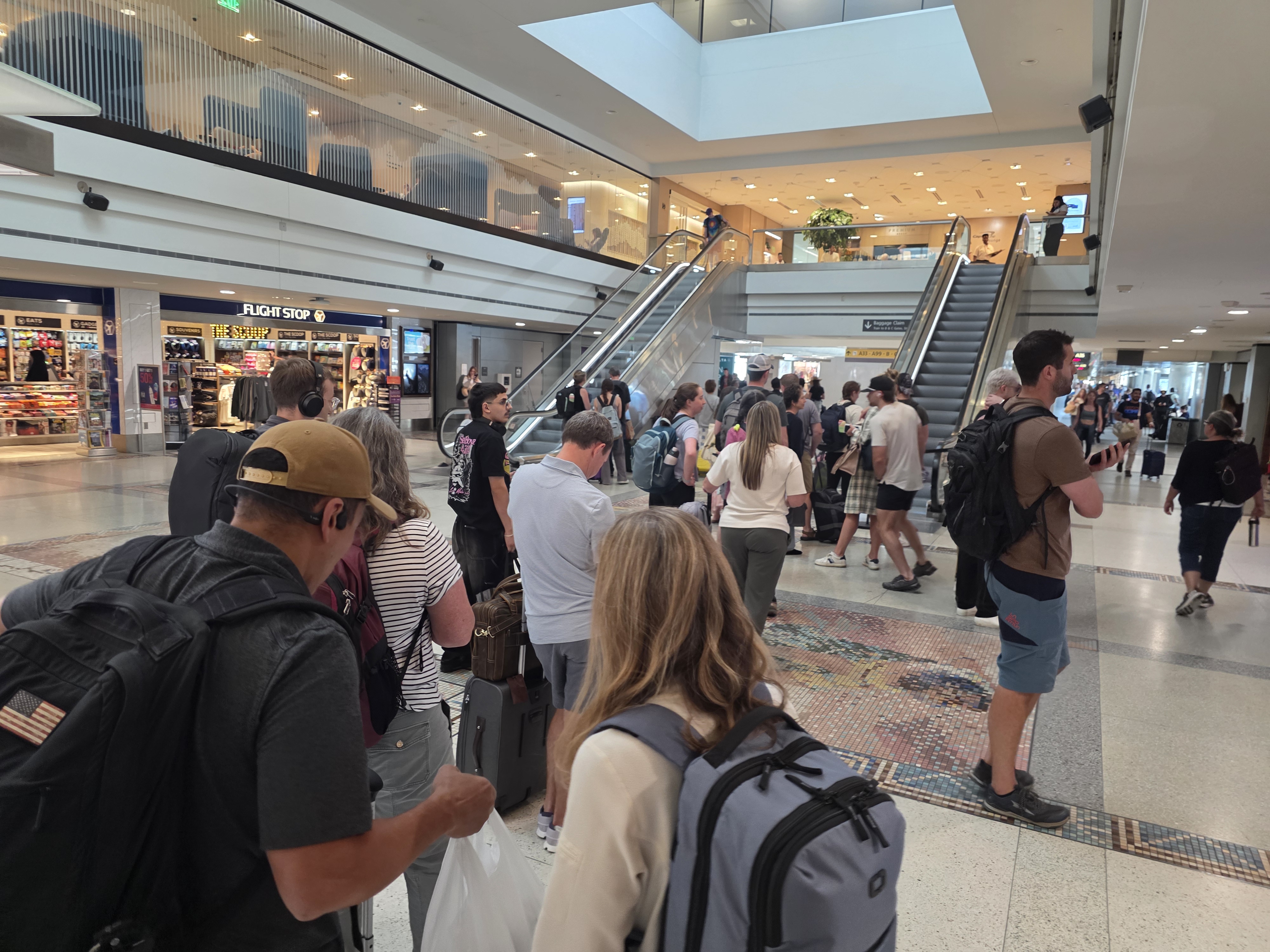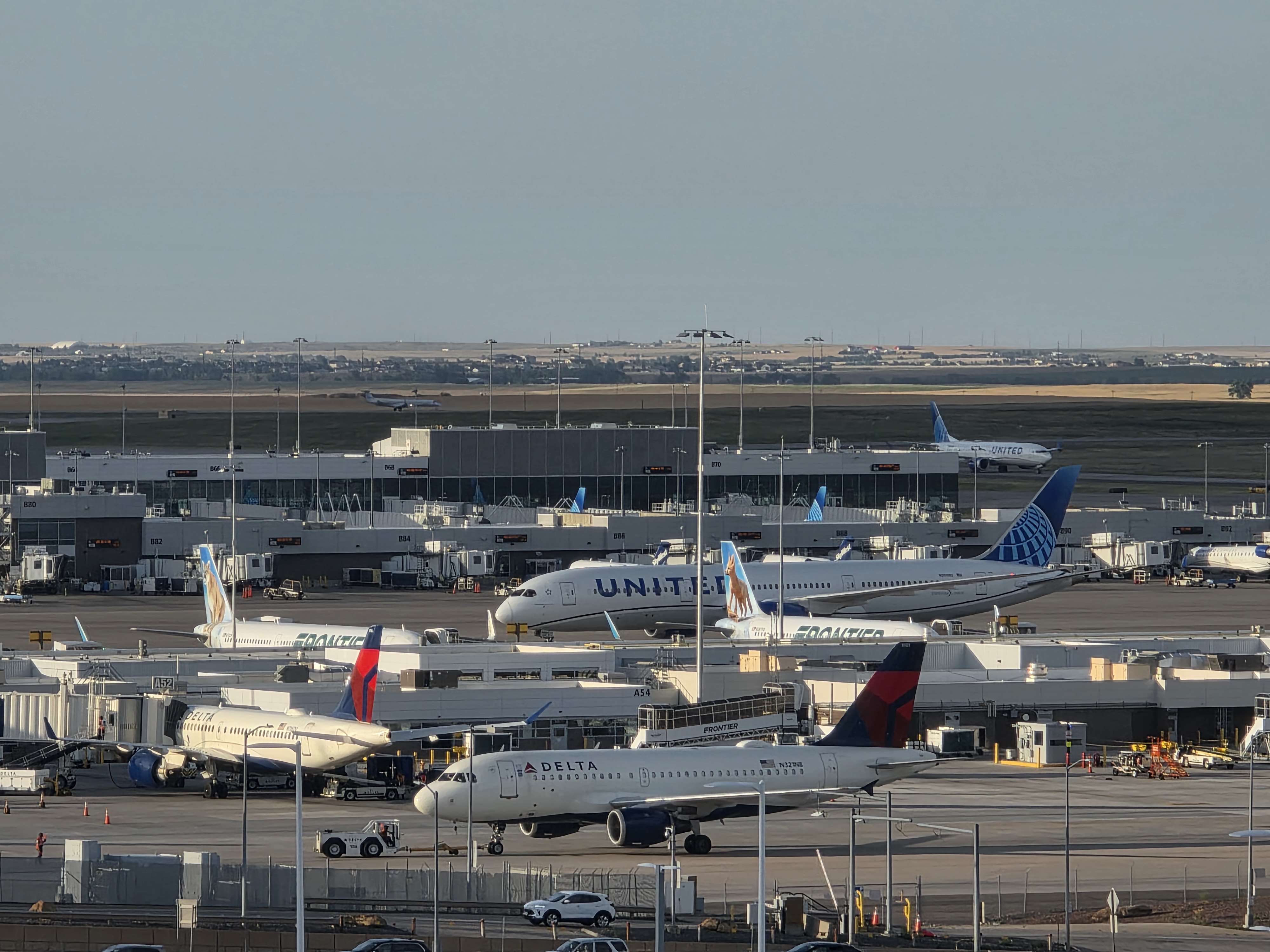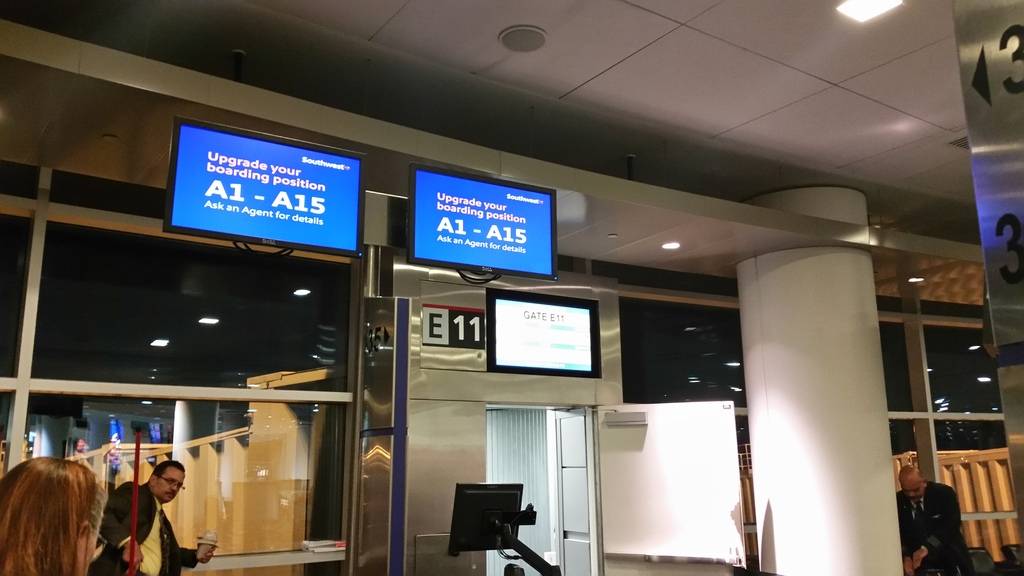Background noise is mentally exhausting, especially for long layovers or early morning flights. Quiet reduces stress.
San Francisco is a ‘quiet airport.’ They limit announcements, background noise and marketing. They cut down on gate announcements, overlapping PA messages, and music. Instead of blasting departure calls terminal-wide, messages are limited to each gate and immediate surroundings. In the International Terminal alone they’ve eliminated over 90 minutes of unnecessary announcements a day, and they’re working to reduce noise from escalators and moving walkways.
Denver airport adopted a similar approach to quiet in August, but aviation watchdog JonNYC flags that Southwest Airlines which has a major presence in Denver has refused to go along.
couple 'a months ago SFO introduced a "quiet airport" initiative (Flight announcements in gate rooms only. Passengers rely on apps and/or monitors through the airport.)
DEN started this last month– no more multiple “final” calls for one flight. No more listing ten names of…
— JonNYC (@xJonNYC) September 10, 2025
— JonNYC (@xJonNYC) September 10, 2025
I reached out to Southwest Airlines for comment and context on why they might not go along with an airport push for quiet terminals. They actually say they will participate “when it rolls out to concourse C.”
I’d note that the narrative of Southwest pushing back on quiet airport, and saying that they’ll go along with it at some point in the future when it’s imposed, are not at all inconsistent. Indeed, they could adopt their part now if they wanted to.


Most travelers now get notifications via mobile apps, email, text, and digital gate boards. Announcements are frequently unnecessary – except for travelers who don’t know to be looking, such as when a gate changes or a specific person is being paged. Overall travelers seem to very much prefer the quiet.
So why might Southwest not be enthusiastic? I see several related possibilities.
- Cheapest way to comply with Air Carrier Access Act. Under 14 CFR Part 382, carriers must give disabled passengers prompt access to the same information at gates and customer-service areas (e.g., delays, boarding, gate changes). Quiet policies force tighter visual redundancies and timing; blasting a PA everywhere is the simplest way to prove parity. Why invest in an alternative?
- Boarding model still depends on narration. Open seating (A/B/C groups, family boarding, lots of preboards) doesn’t go away until next year. They choreograph the status quo model aloud to manage queueing. Muzzling agents outside the immediate gate area adds friction and risks slowing down boarding as they’re trying to reduce turn time – even as they add more gate checked bags as a result of new bag fees.
- Gate areas spill into each other at Denver. At peak, Southwest’s C-concourse gate areas overflow into circulation space. If announcements are confined to a tight area, more passengers miss calls. Again, that slows down boarding and extends turns.
- Southwest doesn’t capture the upside. Customers love the quiet but that inures to the benefit of the airport. Southwest can’t directly monetize – and under Elliott control it’s like N.W.A.’s take on life from “Gangsta Gangsta’.

Once Southwest moves to assigned seats next year, they may not mind quiet terminal as much, and so I wouldn’t be surprised for the terminal C requirement align with that change.
Meanwhile, Amsterdam Schiphol has had a similar “silent airport” initiative since at least 2011, with announcements mostly confined to essential information. There it is not optional. But Southwest’s current fleet can’t reach that far across the Pond.


If WN doesn’t go along with the idea, they’ll be forcing other airlines and their pax to listen to their announcements too. AA, AS, and the commuter airlines also depart from C.
A quiet airport simply means you get to hear all of the conversations of other travelers on their cell phones, or whatever a senior citizen is listening to on theirs (since they have some generational aversion to headphones). T1 in RDU is the perfect example – no ambient music, so you get to to hear Deborah talk about how the doctors are going to have take her foot if – probably on speaker.
Yes, that is quite annoying, a traveler never knows if it is the “final” final call or merely the fifth to last “final” call. I like to be the last to board so I don’t have to get up to allow the middle and window seat to take their places, and in case I am assigned a dreaded middle seat in Europe, where advance seat assignments are not allowed no matter what your status, I can then just take the best seat I see.
@Derek
“and in case I am assigned a dreaded middle seat in Europe, where advance seat assignments are not allowed no matter what your status, I can then just take the best seat I see.”
Excuse me. I have always had a seat assigned to me on flights in Europe. What airline are you flying, or what are you smoking?
The endless announcements are mostly retarded. The announcements that need to be heard about boarding queing and that pre boards does not mean everyone rush the line often do not get announced or can’t be heard by all the noise.
I would like for airports across the U.S. to cut the unnecessary announcement where a mayor or other elected official welcomes everyone to the area and says something good about the area and/or the airport. These announcements, which are repeatedly played, are extremely annoying. I was extremely disappointed when this trend came about.
Kenneth, yes you might hear other sounds or conversations, but I’d rather have the chance of an overheard conversation than a 100% guarantee of hearing that the flight to DSM is starting to board, that the following passengers need to proceed to the gate (followed by the listing of 9 names), then final boarding for DSM, possibly followed by another final call for DSM, all from the opposite end of the concourse, and for every flight that is boarding.
That place is a total Schiphol…
Most of the time, I cannot even understand the PA announcements given the noise, the poor quality of the speakers, other announcements at the same time, and the gate agents not understanding how to use a mike. If you are not right next to the agent who is speaking, the announcements are nearly worthless.
guflyer I’ve been in the conversations where various politicians attempt to get their voices heard over the PA via a welcome message. The worst is when it’s some Board member that nobody even knows who they are. 100% of the time it’s someone simply trying to up their political stock at the expense of all of the rest of us.
@Kenneth — Like this: “Hiya, I’m temporary assistant director of human resources for the Northwest Florida Water Management, District 4, Mr. ‘1990’… thank you for visiting Stark, where our state’s electric chair is located… anyway, enjoy your flight from the Gainesville Regional Airport, where your options are… Atlanta or Charlotte, but only on Tuesdays and Fridays…” Yeah, super helpful. Loop it. Every 5 minutes.
“ATTENTION IN THE TERMINAL! ATTENTION IN THE TERMINAL! Southwest Airlines is announcing the final call for Southwest flight 420 to Orlando group 2, and any customers in possession of a hang nail!”
Last part added to under score the banality of their announcements and their exasperating frequency for whole terminal jabber, particularly at AUS. That is a city that needs WN to take a quiet terminal approach before someone goes mad.